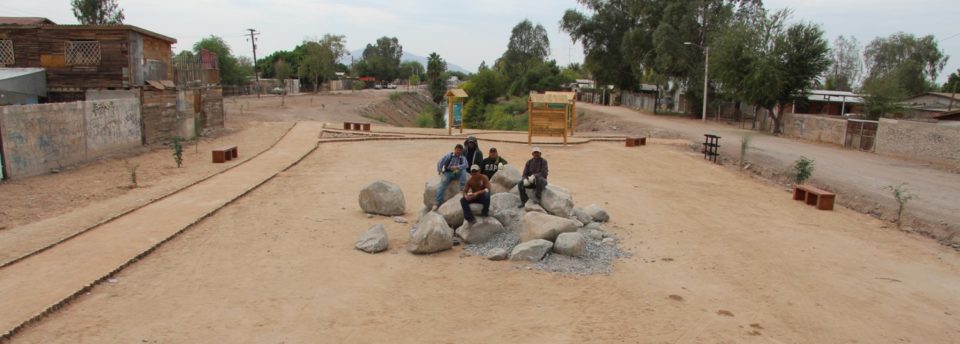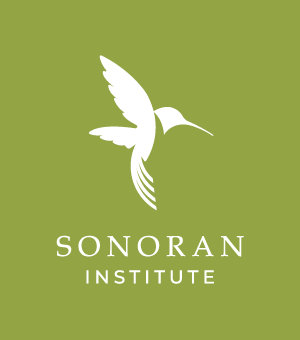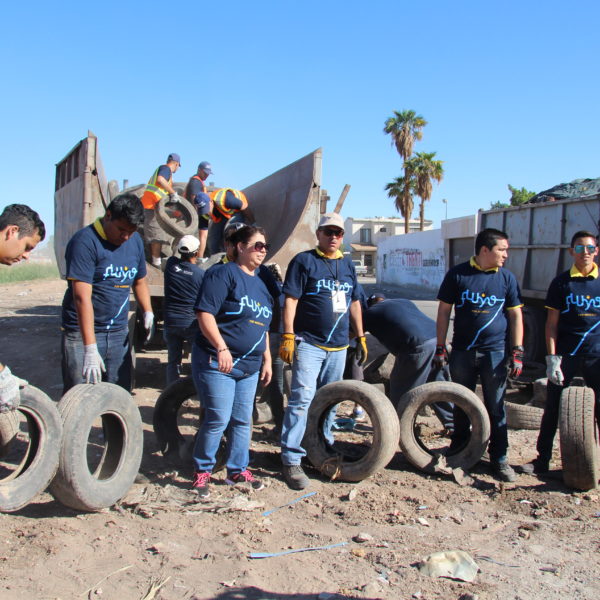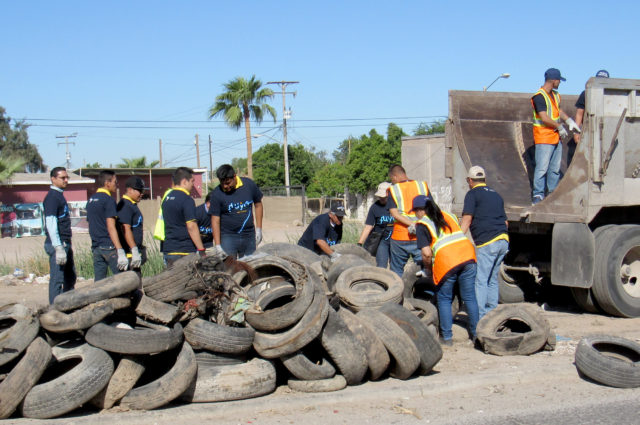There was no way to avoid it. A mountain of old tires, plastic containers, household garbage, and other assorted junk piled up to four times their height loomed just steps away from the entrance to their elementary school. Twice a day, children in the Colonia Fronteriza neighborhood of Mexicali, Baja California, Mexico, had to walk by and through this illegal dump, where rubbish spread across their path and down into the canal that runs by their homes. It was an ugly, smelly, and dangerous blight right in the middle their neighborhood.
Then came the Sonoran Institute. Today, instead of a garbage mound, there is a community park, with benches for neighbors to gather and open space for children to safely play. Instead of a scourge, the area is now a symbol of community pride and cooperation.
“We’ve been transforming the landscape of the Delta for over 15 years,” says Francisco Zamora, director of our Colorado Delta Program, “but our restoration sites are usually fairly remote. We’ve always wanted to do a project in the city, where most of the population in this region is concentrated. With this program, we saw a definite need and opportunity.”
“One of the Best Projects We Have”
It’s part neighborhood watch, part environmental education, and part community improvement competition. Our Mexicali Fluye (Mexicali Flow) campaign is bringing our Delta Program mission straight to the heart of the city, and it’s all adding up to one thing: immediate results.
Flow is a word at the very core of our Colorado River Delta Program. For the plants and wildlife in the Delta, water flowing in the river system means life. For the people who live in the Delta, when water flows, so does opportunity, since a healthier environment brings more tourists, better jobs, and a better overall quality of life.
Running through the city of Mexicali are almost 100 miles of agricultural drains, canals that carry irrigation runoff away from farmlands and also provide drainage to help prevent flooding in the city. That’s the intended purpose. Unfortunately, these drains collect a lot more than water.
“It’s a place people dump their trash,” says Edith Santiago Serrano, our Delta Program’s associate director. “The drains are filled with garbage, mattresses, shopping carts, even cars. All this trash is not only an eyesore; it pollutes the water and blocks its ability to flow.”
A stagnant drain is a serious health hazard. It’s a magnet for rodents and a breeding ground for disease-causing organisms, like the Dengue virus, and the mosquitos that spread them.
At the Sonoran Institute, we saw a different vision for these drains, one that would greatly improve the health and quality of life of the people in Mexicali and benefit the environment at the same time.
“Our idea was to transform them into green corridors,” says Francisco. “By cleaning them, getting them flowing again, they could become a neighborhood amenity instead of blight. We call it ‘Mexicali Fluye’—flows for the drains, flows for the people—and it has become one of the best projects we have led.”

Moving a Mountain
It began with the trash mound and the one-mile stretch of the International Drain, along the U.S. – Mexico border. Working with members of the community and over a dozen federal, state, and municipal agencies, we cleaned out the trash. When the drain filled up with trash again, we cleaned it again. And again.
“We came in, we stayed, we kept cleaning, and we’re not leaving,” Francisco says. “People noticed and began to trust us. They joined in, and the effort keeps growing.”
Enrique Solorio is one of these neighbors. “Before the Sonoran Institute came, the garbage dump was a major problem. After the cleanup, it looks cleaner; it looks better. The park is great for all of us, for our children and for the people who live in this area.”

“We’ve always wanted to do a project in the city, where most of the population in this region is concentrated. With this program, we saw a definite need and opportunity.”
– Francisco Zamora, director of our Colorado Delta Program.
A Comprehensive Approach
“The real challenge is not cleaning the drains once but keeping them clean,” says Edith. “To do this, we’re working to help shift the mindset and promote a sense of ownership and accountability in the community.”
Starting with children, we and our partners have made environmental education a major component of the project. At the elementary school next to that first drain, we collaborated with several government agencies to hold an environmental fair with exhibits on recycling, protecting water resources, how a clean home and environment prevent diseases, information on native plants and trees, and other topics. In an art workshop we conducted at the school, children painted their vision of how the drain was changing and what it could be in the future.
Tackling the root of the problem, the trash issue, we are showing families how to recycle and reduce the solid waste they produce in their households. We’ve also organized neighborhood watch patrols for trash, encouraging people to call the police if they see dumping. In the future, we are hoping to organize competitions among communities to see who can create the best project along their drain.
Ideas for projects along the drains are capturing people’s imagination, and inspiring hope for improvements beyond clean drains. “Installing a recreation center and a police checkpoint would provide a safe place to play and would increase security. We would all feel safer here in the community,” says Jesús González of Valle de Puebla.
“Mexicali Fluye is a flagship project that has revolutionized the cleaning of drains and seeks to change the culture of the community and transform the area’s landscape to create shared living spaces,” says Ing. Antonio Avitia, head of Conservation, District of Irrigation Colorado River S. de R.L. de I.P. de C.V.


